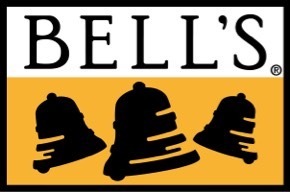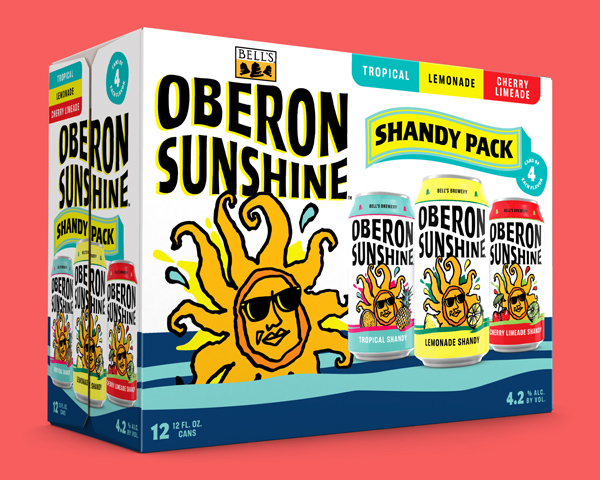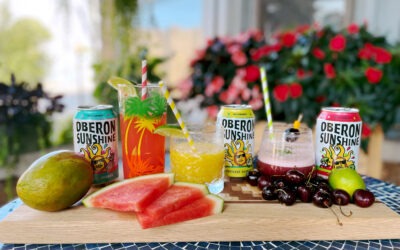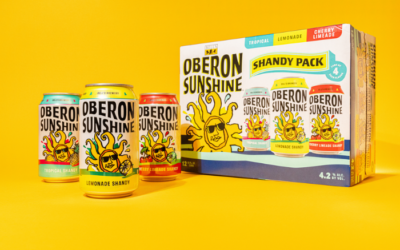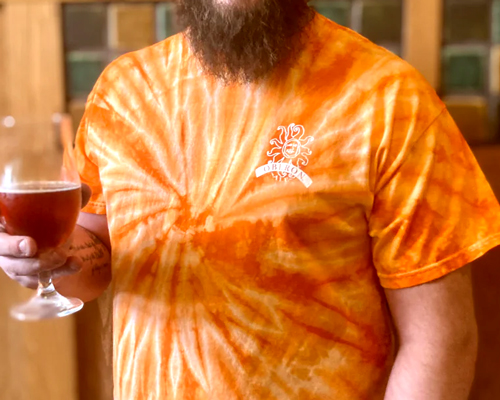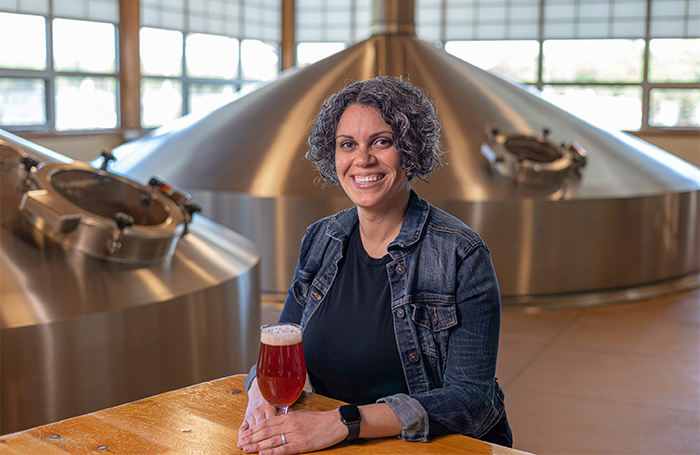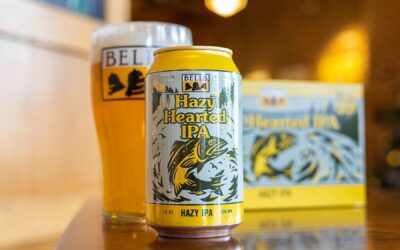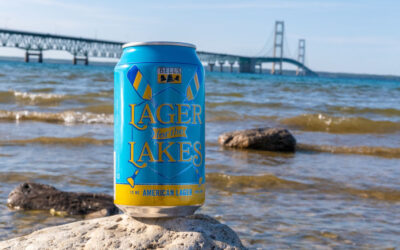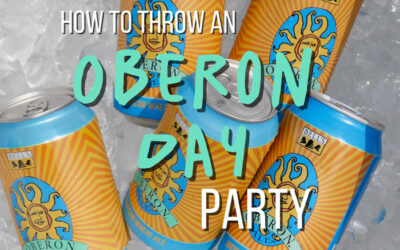What’s better than one Sunshine Shandy cocktail? Three. Three Sunshine Shandy cocktails. Grab a...
Courtney Simmons is the new DEI Director for Bell’s and New Belgium. We recently sat down to talk about the work she does, how craft beer creates communities, and what she hopes to see in five years.
This interview has been edited for length and clarity
Q: So Courtney, welcome to Bell’s and New Belgium! How have the last few months been for you?
Courtney: I would say they’ve been fantastic. Right off the bat, the coworkers have been amazingly welcoming. The leadership team has been wonderful to work with. I instantly felt, even during the interview process, that I was already a part of the team and was embraced.
You came here from outside the beer industry. Where did you work previously?
Grocery, furniture…
And now beer? That’s a West Michigan trifecta! What was something that coming in from outside the of industry that surprised you about craft beer?
I came from pretty corporate organizations. There’s something really wonderful about that, there’s some structure, some process – but sometimes it can be perceived as a little stuffy or buttoned up. Coming to beer, I guess I shouldn’t have been surprised, but it was much more casual and down-to-earth.
Diversity, Equity and Inclusion, (DEI), is a term that people are using a lot these days. What does DEI mean to you and how would you define it?
The real work of DEI is not easily defined. Often we have a nebulous idea – “we must do DEI” – yet the elements of DEI are distinct and complex both in theory and in practice. If I had to boil it down: For me, it’s all about being intentional in understanding the conditions of the spaces that we’re in, so that we can be deliberate in changing them.
For example, it’s about better understanding what lived experiences are considered in our decision-making, and which are missed, either intentionally or unintentionally. To be sure, there is no silver bullet. There is no checklist I can hand to you and say, “Do all these things, and everything will be solved.” DEI is a practice, not a process.
So, DEI is doing the hard work of asking curious questions. “What is really happening in this space?” That could be an organizational space, a community space, that could be at home, in my friend group. “What is really happening here?” As well as “Who is here? Who is present here, who is a part of this community, and who is not?” And the people who are not, how do I bring them into my community?
And then, once I’ve worked to address these questions, and I have a really rich, diverse representation of humans, how do I make sure that I’m actually learning from others – especially the perspectives that challenge me most? It also includes ensuring everyone has what they need to be successful. Another definition for inclusion I’ve heard and really like is “holding another person’s perspective credible long enough to truly consider it.”
That’s great — I’ve never heard that before.
Right. It’s so simple, but typically we listen and prepare to respond, or we listen to mine for the pieces of information we’re interested in so we can ask a smart question. Practicing inclusion is, “I really want to hear about you.” Instead of asking, “So tell me about your spouse, I see you have a ring on your finger,” try saying, “Tell me about your life.” And then, when someone says something that challenges me, instead of saying, “Well, that can’t possibly be, because it doesn’t match my worldview,” responding with something like: “Wow. Shit. That really surprises me. Tell me more about that. I haven’t experienced that, and I’d love to learn.”
How does the DEI work you’re doing now at Bell’s and New Belgium compare to other industries that you’ve worked in?
In all the organizations I’ve worked in, there’s a product being sold to a consumer. What feels unique in craft beer is that not only is there a product, there’s also a community that’s being created. One of craft beer’s main selling points is the feeling you have when you engage with the product – especially when you engage with it in places that are curated to sell the product, in places like New Belgium’s Liquid Centers or Bell’s’ Eccentric Café here in Michigan.
It’s unique: DEI at New Belgium and Bell’s is not just about the people that work in our buildings, but the people who enjoy our product and the spaces where they come together to consume it. The community that craft beer has created can be wonderful, AND it has so much more potential to yield powerful positive benefits if we can ask and answer the tough questions about who feels welcome, who might not, and evolve accordingly.
So one comment that we often get when we post about DEI work on social media is “stick to making beer”or “stay out of politics.” What do you say to that?
At Bell’s and New Belgium, we get to decide what we stand for and what’s important to us. As an organization, we’ve broadly decided that we care about contributing to a better world, that we care about doing right by people and climate solutions, for example. And we typically find that championing those values also happens to support better business results. We don’t really buy in to the idea that this is about “politics” – especially in the way America is considering politics these days where we have to fit every single thing we believe or care about in one camp or another. We’re just here to make good beer and build good community that looks out for one another and takes good care of the land and water that make our livelihoods possible. Diversity, equity, and inclusion is inherently a part of what helps us do right by people. If someone wants to just drink beer, they can do that. But if someone has an issue a business that gives a crap about the people making our beer and the many different folks drinking our beer, that’s still a bit confusing to us. But the good news is that almost all of our beer drinkers really appreciate our work in this space and our business is growing.
People often equate this work with politics, and politics…
As a Human-Powered Business, we recognize that our coworkers drive our business forward, and in return our business commits to investing deeply in the wellbeing of our coworkers and the communities where we operate. This isn’t about politics – and it’s definitely not about partisanship. It’s humanity. It’s about making sure the people who enable our success can pursue happiness, health and, prosperity on equal footing, unencumbered by unnecessary barriers. And we know that doing so makes our business stronger and more resilient in very real ways.
Of course, it’s naïve to imagine that things like this aren’t getting politicized in our society that tries to fit all the complexities of the world into just two political identities. We don’t really buy in to that zero-sum game mindset, though. We simply focus on making good beer and doing right by the many different people that make and drink our beer. When there’s a policy issue that creates inequities and is hindering our folks to be their best versions of themselves, we aren’t afraid to engage in the conversation, and invite everyone to ask the question, “Why are we scared about making sure every American has an opportunity to be their best self? Why do we keep acting like we have one piece of pie that has to be split with millions of people when we have plenty of research and real-life examples that more diverse and inclusive groups of humans are more prosperous and enjoy a higher quality of life?”
Back to our Human-Powered Business model. If we’re going to claim that we’re human-powered, certainly that’s about creating a better world beyond our four walls, but we can’t do that unless we’re taking care of the people inside of our own four walls. We’re learning every day how to do that better. We’re a continuous improvement organization. We know that the shit that happens in our lives doesn’t stop when our coworkers leave work, and what happens at work doesn’t disappear when they go home. If we can create an organization that is diverse, and inclusive, and equitable – and that really truly cares for humans – they are going to take that with them out into the world too. And our business will be stronger for it.
If we jumped into time machine and went five years in the future, what would you want Bell’s and New Belgium to look like?
I think that we would deliver on the promises that we have made to embed DEI practices into our business – and throughout our industry – in a far deeper way. And that’s not to say that “we’ve arrived,” because this is a journey. Language changes, needs change, but I’d love to be able to walk through the halls of any of our organizations, go into a room with a whole bunch of different people and hear different lived experiences. What I’d especially love is that we get to a place where we can learn from each other. When we hear a perspective that challenges us, our first reaction is not to be defensive, but rather, “Oh, wow. Thanks for bringing that insight to me.” Five years feel soon for this goal, but I think what DEI practitioners will often say, “I’d love to put myself out of work.” Wouldn’t it be fantastic if we just did it?
Last question: DEI work is important to us at Bell’s and New Belgium. If someone enjoys our beer and wants to learn more and get involved with this work, what’s the first step?
There’s a ton of free resources on the internet to learn about what DEI looks like in communities and organizations. Each of us identify with a range of both, and all of us can help support DEI principles. Reflect on your own networks. Who are the people we spend most of our time with? Who are the people you collect information from? What are the sources that you value? Audit your answers to these questions – social media included. I advise anyone to really lean into that curiosity the discomfort of learning because that’s where the magic happens. When we feel “that makes me feel some kind of way, I don’t know what to do with that,” really think about that and process it with someone who’s going to say, “I want to challenge you on that” rather than, “You’re right, I agree.” And that’s on every one of us, myself included. We all have enough people who will say “you’re right about everything you said” in our lives.
Thank you for taking the time, Courtney. I’m excited to see the work you do here!
Thank you! It was great to chat!
Related Posts
Hazy Hearted: A Modern Go-To IPA Bursting With Fruity Hoppy Flavor
If you catch our Brewmaster Andy Farrell out and about enjoying a beer, it’s probably a Hazy Hearted. “Hazy Hearted is what I drink at...
Inspired Giving awards $113k to clean water nonprofits in 2023
Clean water is vital not just for great tasting beer, but for everyone to live healthy and full lives. In Michigan, we know this...
Throw the Ultimate Oberon Day Party!
One of our favorite parts about Oberon's annual release is everyone who comes together to celebrate it! From the Eccentric Café in...
